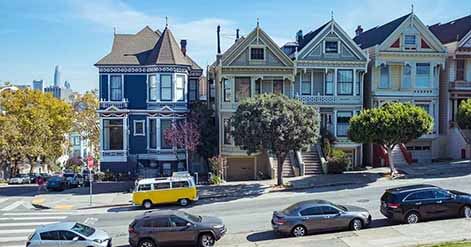Flippers Ride the Housing Wave as California Homes Bought and Resold Quickly Reach Highest Levels Since 2005

![]()
Rising home prices have fueled the return of a practice that some blamed for inflating the bubble: house flipping.
In California, the number of homes sold in recent months that had been flipped—or bought and resold within six months—has reached the highest levels since late 2005, according to PropertyRadar, a real-estate data firm. About 6,000 homes have been flipped in the state this year through April, or more than 5% of all homes sold statewide.
While flipping is re-emerging nationwide, brokers say it is happening most in California, where home prices have risen sharply over the past year. Six of the 10 largest price gains in major U.S. cities over the past year have been in California, according to Zillow. In April, home values rose by 25% from a year earlier in San Jose, San Francisco and Sacramento, and by 18% in Los Angeles.
"When prices rise, this trade works. It's not anything more sophisticated than that," said Christopher Thornberg, an economist with Beacon Economics in Los Angeles. Prices are shooting up due to the short supply of homes for sale, which partly reflects the reluctance of homeowners to list homes at prices down sharply from their peak.
Between 2003 and 2006, investors helped to inflate the bubble by buying multiple houses and condominiums, many of them newly built, and then quickly reselling them at higher prices. No-money-down loans fueled many of those purchases. When prices began to fall, investors unloaded properties at big discounts or walked away from them, accelerating the downturn.
The industry is split over whether the current flipping activity could lead to potential problems. Jed Kolko, chief economist and a vice president at Trulia Inc., an online real-estate site, says the current activity isn't indicative of a bubble. "A bubble is when prices are rising fast from high levels," he said. "We're not there now."
Today's flippers are stronger financially. Flipping homes requires lots of cash because banks aren't making loans to investors who don't have large down payments. While some investors have bought many homes that can be rented out, it usually isn't feasible financially to rent out more expensive properties.
Another big difference: Many investors are buying and fixing up neglected homes, including foreclosures, that ordinary buyers might not have the cash or the patience to tackle. For their part, flippers say they are doing the market a service and are buying homes overlooked by others, either because they need repairs or because they aren't widely marketed. But some real-estate agents are raising concerns that investors are taking advantage of tight supplies.
Competition for homes "is reaching bubble proportions, and I'm very wary of it," said Rich Worcester, a real-estate agent in San Diego who flipped about 25 homes last year for himself and clients. Mr. Worcester is representing a colleague who paid $675,000 last month for a foreclosed three-bedroom home in San Gabriel, a Los Angeles suburb. After installing new appliances, relandscaping and staging the empty house with furnishings, it hit the market for $867,000 earlier this month. Mr. Worcester said it hasn't yet received any offers, and he conceded he may cut the price.
Investors generally make all-cash payments, which gives them an extra advantage over buyers who must complete a lengthy mortgage-approval and home-appraisal process.
Robert Ganem beat out four other offers this year when he paid $600,000 for a short sale—in which a home is sold for less than the amount owed on its mortgage—in Ladera Ranch, in southern Orange County. He made cosmetic renovations—fresh paint, new hardwood floors and kitchen tiles—before selling it a few weeks later for $755,000.


